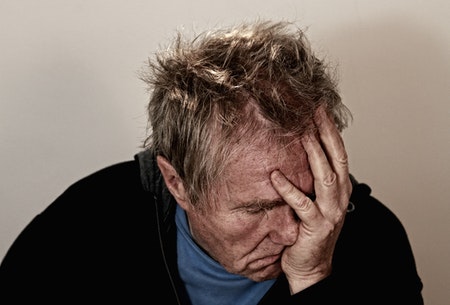Excess exposure to heat can make some people feel ill. Illness caused by heat can happen to anybody. The average body temperature is 37°C (98.6F), although body temperature can range between 36.1°C to 37.2°C, it is still considered as normal. Depending on how agile you are, or the time of the day, your body temperature can vary. Young people tend to have a higher body temperature than old people.

Too much heat can cause heat exhaustion. Heat exhaustion is a term used to describe the feeling of illness after too much exposure to heat. Dehydration usually follows after heat exhaustion. Dehydration is the state in which the water level in the body drops below normal. Dehydration causes serious thirst.
Heat exhaustion exists in two ways which are: (1) Water depletion (2) Salt depletion.
1. Water depletion is the state in which the water level in the body goes below normal. There is not enough water in the body, and as a result, leads to serious thirst, headache, weakness and loss of consciousness.
2. Salt depletion refers to the condition whereby, the salt level in the body is low. The signs of salt level depletion include muscle cramps, nausea, dizziness, vomiting.

Heat exhaustion shouldn’t be handled with levity as it can lead to a more serious heat complication known as “heat stroke”. Heatstroke is a life-threatening condition in which the skin becomes very dry. If treatment is delayed in the case of heatstroke, the mortality rate can be as high as 60%.
Signs And Symptoms Of Heat Exhaustion
Some signs and symptoms of heat exhaustion include vomiting, dizziness, dark-coloured urine, fainting, tiredness, muscle cramps, pale skin, serious sweating, confusion.
Prevention Of Heat Exhaustion
Anytime there’s a high heat index, it’s best to stay indoors with a working air conditioning system in place. In case you have no option but to go outside, then follow these steps to preventing heat exhaustion.
1. Put on loose clothing with a light colour and a lightweight. You must avoid putting on clothing like sweaters and cardigans as this type of cloths will heat your body.
2. Apply sunscreen with a sun protection factor of 30 or more than 30.
3. Take extra fluids. Extra fluids like water, vegetable juice or fruit juice should be taken well every day. During long periods of excessive humidity and heat, enough water should be taken, as water helps to cool the body temperature. Take enough water every day. It helps. It is better to consult with your doctor for the best fluid intake depending on your health and how often you should be drinking it.
4. When exercising, ensure an adequate amount of water is taken, even if you are not thirsty.
5. Alcohol and caffeine should be avoided as these substances dry up fluids and makes heat exhaustion worst.

How Heat Exhaustion Can Be Treated
1. If you suffer from heat exhaustion, or you are close to anyone suffering from heat exhaustion, it is advisable to leave the heated area as soon as possible, and locate a cool spot with plenty of fresh air or air-conditioned room.
2. It is also advisable to bath with cold water or a cool shower.
3. Plenty of fluids like sports drink should be taken to replace lost salt
4. Excess and tight clothing should be removed
5. Fans, air conditions and other cooling measures should be applied.
After applying any of the above measures, if the heat exhaustion still persists, then medical attention should be sought immediately as delayed help can lead to heatstroke.
Risk Factors Associated With Illnesses Caused By Heat

1. Age: Old adults and young children are more prone to heat exhaustion as their body tends to adjust more slowly than other individuals
2. Heat index: This is a measure of how hot one feels when the effects of air temperature and relative humidity are joined. When there is a relative humidity of 60 per cent and more, it encumbers the evaporation of sweat, which hampers the body’s capability to cool itself.
3. Health conditions: There are several health-related conditions in which people suffering from these kinds of illnesses are more prone to heat exhaustion. People suffering from diseases like diabetes, HBP, obesity, liver and kidney disease, heart disease, alcoholism etc. are more prone to hospitalisation and death from heat-related illnesses.
It is important to consult with your doctor to confirm if your health condition is likely to affect how you cope with excessive humidity and extreme heat.
In a nutshell, extreme heat can make you lose your balance as you feel uncomfortable leading to nausea, vomiting, fainting, dizziness, headache etc. Therefore, it is important to meet with your doctor so he or she can give you the best advice depending on how your body system works.
If you follow the above pieces of advice, then you should be able to avoid the problem of heat exhaustion.

